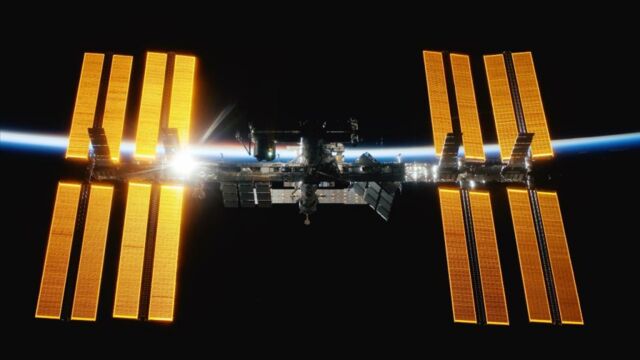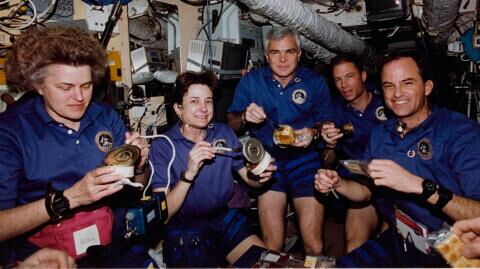At the end of 2022, NASA announced that a leak had been detected on a module docked to the ISS. A video showed coolant being ejected violently from a Soyuz MS-22. Almost a year later, another leak was detected in the Russian sector of the station.
Discover our latest podcast
A broken radiator
The fate of Russian scientists aboard the ISS is undoubtedly taking its toll. On Tuesday 10 October, Roscosmos announced that a leak had been detected on a module. More precisely, the failure was found on a radiator in the Nauka module. This is a space laboratory, which will join the ISS in 2021.
At 1pm, NASA reported 'flakes emanating from one of the two radiators' and 'informed the space station crew of the potential leak'. After confirmation, the shutters on the station's American sector were closed 'as a precaution against contamination'.
#ISS : La fuite sur le module #Nauka est confirmée par Roscosmos :
— Rêves d'Espace (@RevesdEspace) October 9, 2023
"... une fuite du fluide caloporteur du circuit de radiateur externe (réserve) s'est produite... Le circuit principal de la commande thermique du module fonctionne en mode normal et ...
1/2 pic.twitter.com/Wz1LYGVmeE
Read more:NASA's strange way to save astronauts that get lost in space
Are the astronauts and cosmonauts on board in danger?
This is obviously the first question that arises. Roscosmos is very reassuring: the agency has stated that the leak only concerned an emergency radiator, older than the Nauka module. The main circuit is said to be intact and 'the crew and the station are in no danger'.
After the leak on Soyuz MS-22 in December 2022, Sergei Prokopiev, Dmitri Peteline and Frank Rubio had to stay in orbit much longer than expected. They finally returned to Earth on September 27, one year after their arrival on the ISS.
The Soyuz leak was not caused by a malfunction, but rather by a micrometeorite impact on the vehicle. This would have forced Roscosmos to send a replacement vehicle, which explains why these scientists stayed on board the station longer than expected.
Read more: The bizarre ways astronauts eat in space will blow your mind
This article has been translated from Gentside FR.
Source used:
CNN: A radiator circuit on the ISS is leaking















